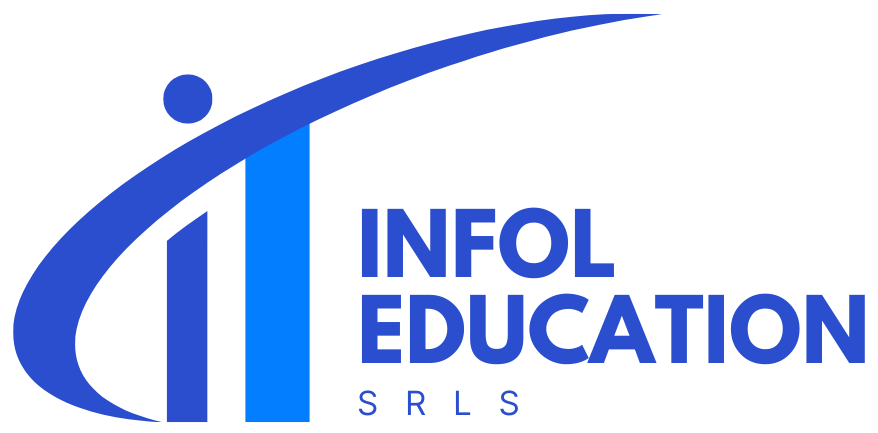This Erasmus training course is designed to equip educators with the knowledge, skills, and strategies necessary to create inclusive classrooms through effective differentiation. Differentiation is a teaching approach that involves tailoring instruction to meet the diverse needs of students, ensuring that every learner can achieve their fullest potential. This course provides a comprehensive understanding of differentiation and its application in fostering an inclusive educational environment.
In today’s diverse educational landscape, classrooms are increasingly heterogeneous, comprising students with varied backgrounds, abilities, and learning styles. The traditional one-size-fits-all approach to teaching is no longer sufficient to meet the needs of all students. Differentiation, therefore, becomes a crucial pedagogical strategy. It allows educators to design and deliver instruction that meets each student’s unique needs, providing multiple paths to learning.
This course emphasizes the importance of inclusive education, which seeks to ensure that all students, regardless of their abilities or backgrounds, have equal access to quality education. Inclusive education not only focuses on academic achievement but also on the social and emotional well-being of students. It promotes diversity and encourages a sense of belonging among all students.
Through this course, participants will explore the theoretical foundations of differentiation and inclusive education, gaining insights into the latest research and best practices. They will learn to assess students’ readiness, interests, and learning profiles, and use this information to plan and implement differentiated instruction. The course will cover various strategies for differentiating content, process, and product, providing practical examples and case studies.
Participants will engage in hands-on activities, workshops, and group discussions, allowing them to apply the concepts and strategies learned. They will also have the opportunity to reflect on their current practices, identify areas for improvement, and develop action plans for implementing differentiation in their classrooms.
The course aims to create a community of practice among participants, fostering collaboration and the exchange of ideas and experiences. By the end of the course, participants will be equipped with the skills and confidence to create inclusive classrooms where every student can thrive.
Whether you are a primary or secondary school teacher, a special education teacher, a school administrator, or anyone involved in education, this course offers valuable insights and practical tools to enhance your teaching practice and support all learners effectively. Join us in this transformative journey to mastering the art of differentiation and creating inclusive classrooms that celebrate diversity and promote equity.
Day 1: Foundations of Differentiation (4 hours)
- Module 1: The Power of Differentiation: Exploring the benefits and rationale for differentiating instruction.
- Module 2: Understanding Diverse Learners: Identifying student differences in learning styles, needs, interests, and prior knowledge.
- Module 3: Planning for Differentiation: Developing a framework for planning differentiated lessons.
Day 2: Differentiation Strategies in Action (4 hours)
- Module 4: Differentiation of Content: Adapting the level, format, and complexity of learning materials.
- Module 5: Differentiation of Process: Varying instructional approaches, activities, and grouping strategies.
- Module 6: Differentiation of Products: Providing students with diverse ways to demonstrate their learning and understanding.
Day 3: Assessment and Differentiation (4 hours)
- Module 7: The Role of Assessment in Differentiation: Using formative assessment to gather data and inform instruction.
- Module 8: Differentiated Assessment Strategies: Implementing a variety of assessment methods that cater to different learning styles.
- Module 9: Providing Effective Feedback: Strategies for providing clear, constructive, and individualized feedback to students.
Day 4: Differentiation in Action: Subject-Specific Workshops (4 hours)
- Workshops
Day 5: Building a Differentiated Classroom (4 hours)
- Module 10: Creating a Learning Environment that Supports Differentiation: Classroom layout, resources, and routines.
- Module 11: Collaboration and Co-teaching: Strategies for working with colleagues to support diverse learners.
- Module 12: Reflection and Action Planning for Sustainability: Developing a personalized plan to implement differentiation in your classroom.
Learning outcomes
By the end of the course, participants will be able to:
- Explain the importance of differentiated instruction in creating inclusive classrooms.
- Identify diverse learning styles, needs, and interests within their classrooms.
- Design and implement a variety of differentiation strategies in content, process, product, and assessment.
- Utilize formative assessment techniques to monitor student progress and adjust instruction accordingly.
- Develop engaging learning activities that cater to different learning styles and abilities.
- Create a positive and supportive classroom environment that celebrates diversity.
Upcoming sessions
Location: Rome
- September 2024: Week 4 (September 23 – 27)
- November 2024: Week 1 (October 28 – November 1)
- November 2024: Week 5 (November 25 – 29)
- February 2025: Week 1 (February 3 – 7)
- March 2025: Week 1 (March 10 – 14)
- April 2025: Week 2 (April 7 – 11)
- May 2025: Week 2 (May 12 – 16)
- June 2025: Week 2 (June 9 – 13)
- July 2025: Week 3 (July 14 – 18)
- September 2025: Week 3 (September 15 – 19)
- November 2025: Week 4 (November 24 – 28)





